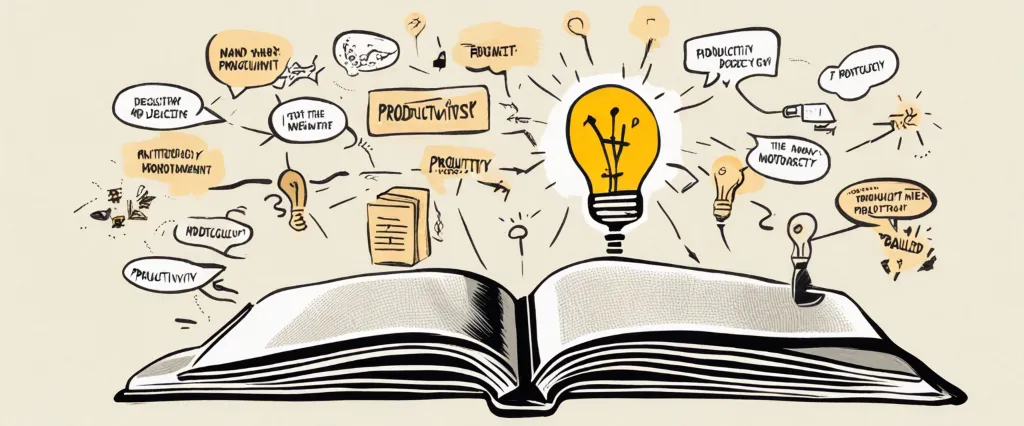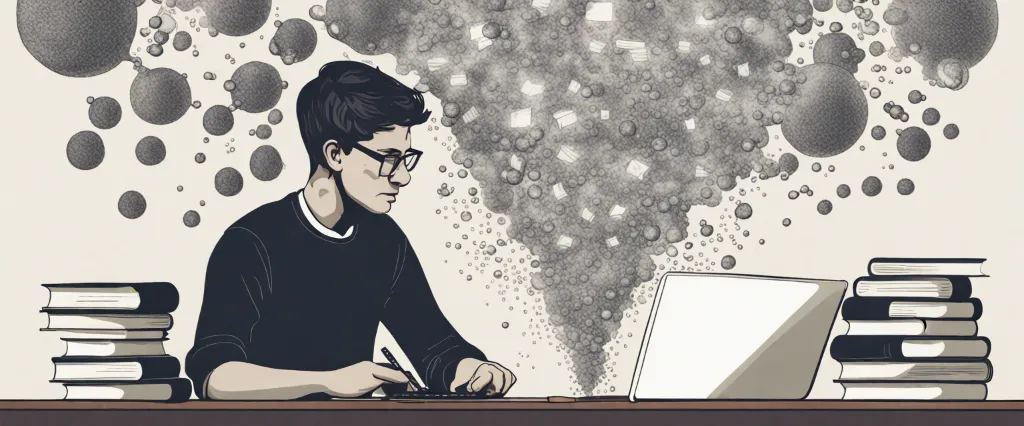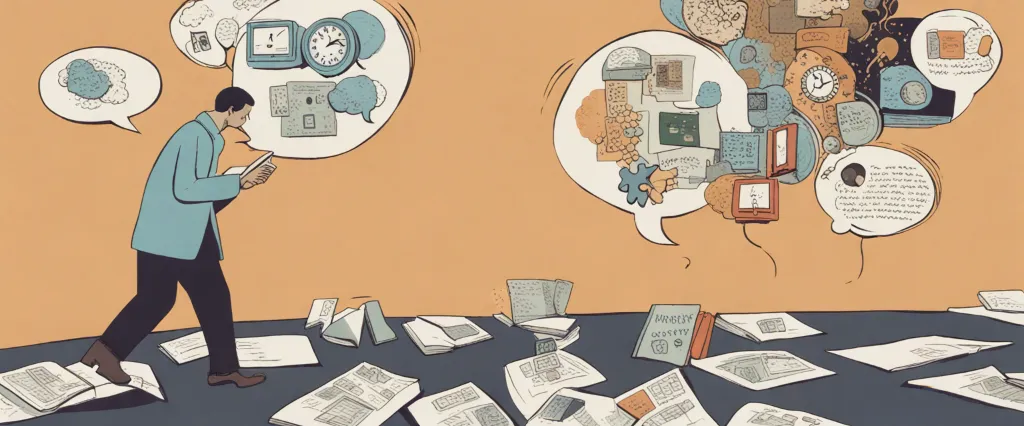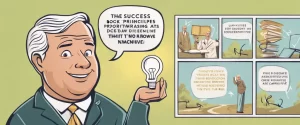
In an era dominated by distractions and perpetual busyness, finding ways to be productive and maintain focused work seems like an ever-elusive challenge. However, two remarkable authors, Chris Bailey and Cal Newport, have sought to tackle this universal struggle in their respective books, “The Productivity Project” and “Deep Work.” While both works echo a common goal of enhancing productivity, their approaches and perspectives diverge, providing readers with unique insights and strategies. In this comparative study, we delve into the depths of these two literature gems, exploring their central themes, methodologies, and underlying teachings. By examining the comprehensive tactics suggested by Bailey and Newport, we aim to shed light on the nuanced pathways that can lead individuals towards their most productive and fulfilling lives. From separating the vital from the trivial to mastering the art of sustained focus, let us embark on a journey that uncovers the strategies embedded within “The Productivity Project” and “Deep Work,” ultimately empowering us to unlock our fullest potential.
Brief Summary of Two Books
The Productivity Project by Chris Bailey
The Productivity Project by Chris Bailey is a self-help book that explores various strategies and techniques to enhance productivity and achieve more in less time. Bailey delves into his year-long experiment of conducting extensive research, conducting various productivity experiments, and adopting different productivity tactics to maximize his efficiency.
Throughout the book, Bailey emphasizes the importance of focusing on meaningful work and offers insights on managing distractions and minimizing procrastination. He emphasizes the significance of prioritizing tasks and highlights the benefits of single-tasking rather than multitasking, as it allows for greater concentration and a higher quality of output.
Bailey explores the concept of attention management and suggests techniques such as meditation and mindfulness to improve concentration and reduce mental clutter. He also advocates for the utilization of technology tools and apps to streamline productivity, including the use of digital task managers, email filters, and social media blockers.
Additionally, The Productivity Project discusses the importance of taking breaks and managing energy levels to maintain sustainable productivity. Bailey provides tips on optimizing sleep, nutrition, exercise, and relaxation to enhance overall well-being and cognitive function.
Furthermore, the book delves into the concept of intentional procrastination, suggesting that by selectively procrastinating on less important tasks, individuals can better allocate their time and attention toward more significant activities.
By embracing a personalized approach to productivity, readers can adapt and apply the techniques and strategies discussed in The Productivity Project to their own lives, ultimately achieving greater efficiency and fulfillment in their daily tasks and long-term goals.
Deep Work by Cal Newport
Deep Work by Cal Newport is a self-help book that explores the importance of deep work, which refers to the ability to focus without distraction on a cognitively demanding task. In the book, Newport argues that in today’s world of constant distractions and shallow work, deep work is becoming increasingly rare and valuable. He presents various strategies and practices to cultivate deep work in order to enhance productivity, satisfaction, and success.
Newport provides anecdotes and examples from renowned individuals who prioritize deep work and achieve exceptional results. He emphasizes the need to eliminate or minimize distractions like social media, email, and meetings and suggests creating rituals and routines to establish a conducive environment for uninterrupted deep work. He also highlights the importance of embracing boredom and solitude, as they can enhance focus and creativity.
Additionally, Newport introduces the concept of “deep work philosophies,” which are individualized approaches to deep work. These philosophies can help individuals determine how they can integrate deep work into their unique circumstances, whether by scheduling regular deep work blocks, adopting a rhythmic approach, or relying on bursts of deep work.
Overall, Deep Work provides a compelling argument for the necessity of deep work in an increasingly distracted world and offers practical strategies to attain sustained focus and productivity. By implementing the principles and recommendations outlined in this book, individuals can strive for higher levels of performance and fulfillment in their professional and personal lives.
Comparison between Two Books

Similarities in Time Management
Both “The Productivity Project” by Chris Bailey and “Deep Work” by Cal Newport focus on time management and productivity. Here are some similarities regarding time management discussed in both books:
1. Importance of scheduling and prioritizing: Both books emphasize the significance of setting clear goals, scheduling tasks effectively, and prioritizing work based on importance and urgency.
2. Minimizing distractions: Both authors agree that minimizing distractions is crucial for improving productivity. They provide strategies to carve out distraction-free time, such as setting boundaries with technology and creating dedicated workspaces.
3. Deep, focused work: Both books stress the importance of doing deep, focused work as opposed to shallow work or multitasking. Bailey and Newport explain the benefits of dedicating uninterrupted time to deep work and provide strategies to achieve it.
4. Setting work boundaries: Both authors discuss the significance of setting boundaries around work, including limitations on working hours, taking breaks, and maintaining work-life balance. They provide insights on how to create boundaries to avoid burnout and maintain productivity in the long run.
5. Time-tracking and productivity measurement: Bailey and Newport advocate for monitoring and analyzing time spent on various tasks. They explain the benefits of time-tracking, tracking progress, and reviewing productivity metrics to identify areas for improvement.
6. Personalizing time management approaches: Both authors acknowledge that different individuals have unique preferences and working styles. They encourage readers to personalize their time management approaches according to their own strengths, weaknesses, and values.
7. Value of deliberate practice: Both books highlight the importance of deliberate practice for improving productivity. Bailey and Newport discuss the concept of deliberate practice in the context of enhancing skills, focusing on high-value tasks, and continuously improving efficiency.
Overall, both books explore the idea of managing time effectively to optimize productivity. They provide practical techniques, actionable advice, and real-life examples to help individuals make the most of their time and achieve their goals.
Divergences in Time Management
The Productivity Project by Chris Bailey and Deep Work by Cal Newport are both highly regarded books that explore the topic of productivity and time management. While they share some similarities in their approach, there are notable divergences when it comes to their viewpoints on time management.
In The Productivity Project, Chris Bailey emphasizes the importance of experimentation and finding personalized strategies for managing time effectively. Bailey conducted numerous productivity experiments on himself over a year and identified various techniques that worked best for him. He encourages readers to try different approaches, such as time blocking, minimizing distractions, and setting clear goals, to discover what works best for their own productivity. Bailey emphasizes the need for flexibility and adaptability in time management, acknowledging that what works for one person may not work for another.
On the other hand, Deep Work by Cal Newport takes a more focused approach to time management. Newport argues that the ability to concentrate deeply on important tasks for extended periods is crucial for productivity. He promotes the concept of deep work, which refers to the state of uninterrupted, high-focus work that leads to significant accomplishments. Newport suggests that scheduling dedicated blocks of time for deep work can significantly enhance productivity and produce better results. He emphasizes the importance of eliminating distractions and creating an environment conducive to deep work, often advocating for the reduction or elimination of shallow, unproductive tasks.
Therefore, the major divergence in their viewpoints on time management can be summarized as follows:
1. Flexibility vs. Focus: The Productivity Project encourages experimentation and a flexible approach to time management, whereas Deep Work emphasizes the importance of dedicating focused blocks of time for deep, uninterrupted work.
2. Personalization vs. Universality: Chris Bailey highlights the need for customized time management strategies that suit individuals’ preferences and work styles, whereas Cal Newport argues for a more universal approach to deep work that can be applied to most individuals.
Ultimately, while both books aim to enhance productivity and time management skills, they differ in their strategies and perspectives. The Productivity Project emphasizes personalization and experimentation, while Deep Work promotes a focused, deep work approach to maximize productivity.

Conclusion
Both “The Productivity Project” by Chris Bailey and “Deep Work” by Cal Newport are highly regarded books on productivity and focus. Ultimately, the choice of which book to read depends on your personal preferences and goals.
If you are looking for practical tips and experiments to increase your overall productivity, “The Productivity Project” might be a good choice. Chris Bailey explores various productivity techniques, shares his insights from a year-long productivity project, and offers actionable strategies for optimizing your time and energy.
On the other hand, if you want to delve deeper into the concept of focus and concentration in an increasingly distracted world, “Deep Work” by Cal Newport might be more suitable for you. Newport discusses the importance of intense, uninterrupted work to produce high-quality results and provides strategies for achieving deep work in our hyper-connected society.
Both books have been praised for their valuable insights, so you may consider reading reviews, summaries, or excerpts to get a better idea of which book resonates more with your needs and interests.


